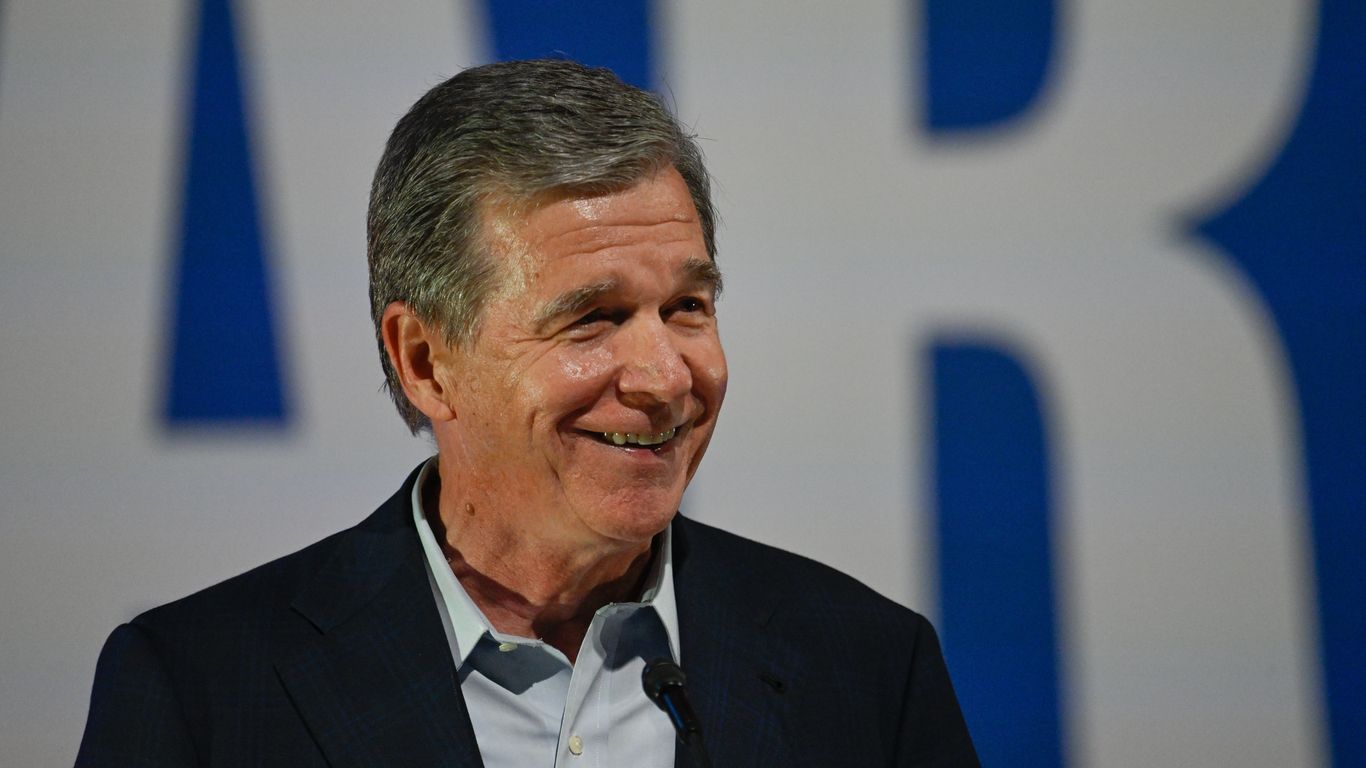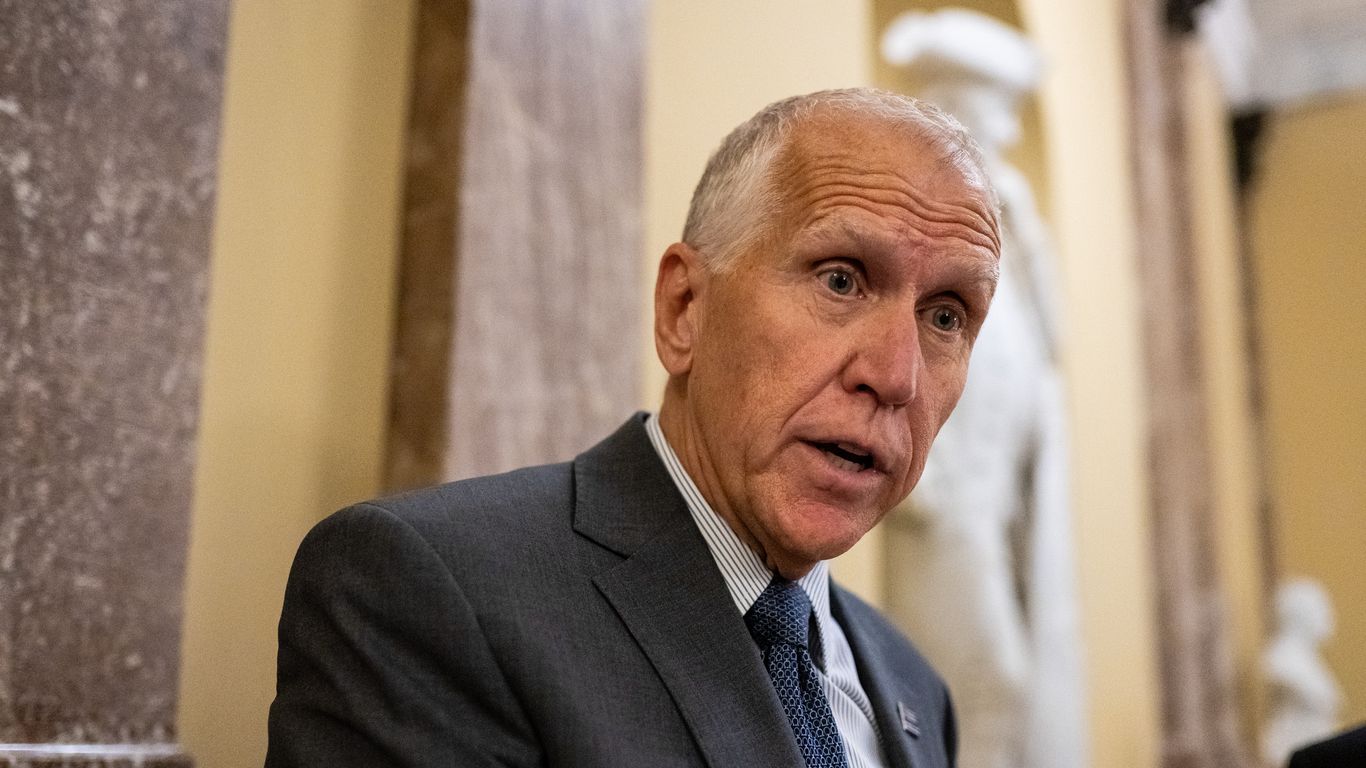Record-Breaking Fundraising in North Carolina's 2026 Senate Race

Introduction
Roy Cooper, the Democratic governor of North Carolina, has set a new fundraising record for his 2026 Senate campaign. According to Politico, strategists from both parties predict that this race will be the most expensive in the state's history. With so much money being poured into the race, it's important to understand the implications and potential impact of this record-breaking fundraising.
Key Details
The previous fundraising record was set by Republican Senator Thom Tillis in 2014, with a total of $30 million raised. However, Cooper has already surpassed that number with over $35 million raised in the first half of 2026 alone. This is a clear indication of the importance and competitiveness of this Senate race. Both parties are expected to heavily invest in this race, with outside groups and super PACs likely to contribute as well.
Impact
The impact of such a costly campaign cannot be underestimated. Not only does it show the intense competition for the Senate seat, but it also highlights the importance of North Carolina in national politics. The state has been a key battleground in recent years and this record-breaking fundraising only solidifies its significance. Additionally, the influx of funds can also lead to negative campaigning and attack ads, potentially overshadowing important policy discussions and debates.
About the People Mentioned
Roy Cooper
Roy Cooper is the 75th Governor of North Carolina, serving since January 2017. Born and raised in Nash County, North Carolina, he attended public schools and worked on his family farm before earning undergraduate and law degrees from the University of North Carolina at Chapel Hill. Cooper practiced law in Rocky Mount, NC, for 18 years. His mother was a public school teacher, which influenced his strong commitment to education[1][2]. Cooper began his public service career in the North Carolina House of Representatives in 1986 and later served in the State Senate, where he became the Democratic Majority Leader in 1997. During his legislative tenure, he advocated for increased teacher pay, reduced class sizes, and authored North Carolina’s first children’s health insurance initiative. Notably, as Senate Majority Leader, he led the passage of the pioneering 1999 North Carolina Predatory Lending Law, aimed at protecting homeowners from unaffordable loans[1][2][4]. In 2000, Cooper was elected Attorney General of North Carolina, a position he held for four terms until 2017. As Attorney General, he focused on family protection, crime reduction, consumer advocacy including fighting predatory lenders, and lowering utility rates[1][4]. As governor, Cooper has prioritized public education, economic development, rural revitalization, health care access, and disaster recovery after hurricanes. He successfully championed Medicaid expansion in North Carolina, which is considered a major policy achievement. Cooper also oversaw bipartisan efforts on energy policy, including legislation to reduce carbon emissions by 70% by 2030 and achieve carbon neutrality by 2050. He has appointed the most diverse cabinet in state history and worked to ensure government reflects the state’s demographics[1][7]. Cooper’s leadership has been marked by working with a legislature often controlled by the opposition party, navigating political challenges to advance his agenda focused on improving the welfare and prosperity of North Carolinians[7].
Thom Tillis
Thomas Roland Tillis, known as Thom Tillis, is an American politician serving as the U.S. Senator for North Carolina. Born on August 30, 1960, in Jacksonville, Florida, Tillis grew up in a working-class family and faced financial challenges early in life. After high school, he worked as a warehouse records clerk before pursuing higher education, earning a bachelor's degree from the University of Maryland University College in 1997[1][2]. Tillis built a successful career in the private sector, working as an executive at IBM and a partner at PricewaterhouseCoopers. His 29-year tenure in technology and management consulting provided him with a deep understanding of policy-making and organizational management[2][4]. He transitioned into public service, serving as a member of the Cornelius Board of Commissioners and later as the PTA president at Hopewell High School. In 2006, he was elected to the North Carolina House of Representatives, where he served as Speaker from 2011 to 2014[2][3]. Tillis was first elected to the U.S. Senate in 2014 and re-elected in 2020. He is a member of several key Senate committees, including Finance, Veterans’ Affairs, and Judiciary[3][5]. As Senator, Tillis has focused on pragmatic policy solutions and job creation. Recently, he has been involved in sponsoring legislation such as the National Park System Long-Term Lease Investment Act[5]. Tillis resides in Huntersville, North Carolina, with his wife Susan, and they have two grown children[2][3].
About the Organizations Mentioned
Democratic Party
## Overview of the Democratic Party The Democratic Party is the oldest continuing political party in the United States, with its roots tracing back to 1792 as the Democratic-Republican Party. Founded by Thomas Jefferson and James Madison, it initially advocated for a decentralized government and states' rights, opposing a strong central authority[1][2]. Over time, the party evolved, becoming more progressive and supportive of federal government intervention in social and economic affairs. ## History The modern Democratic Party was formally established in 1828, with Andrew Jackson's presidential campaign marking a significant turning point. Jackson's successful campaign expanded voting rights to all white men, regardless of land ownership, and further reduced federal power[3][6]. The party became deeply divided during the Civil War era, with Northern Democrats supporting limited slavery expansion and Southern Democrats advocating for its perpetuation[3][5]. Post-Civil War, the party became a stronghold for Southern whites who opposed Reconstruction[3]. ## Key Achievements The Democratic Party has played a pivotal role in shaping U.S. history: - **Civil Rights**: The party supported key civil rights legislation, including the Voting Rights Act and the Civil Rights Act of 1964. - **Social Programs**: Democrats have been instrumental in establishing and expanding social programs like Social Security, Medicare, and Medicaid. - **Economic Policies**: The party has often championed progressive economic policies, including labor rights and environmental protection. ## Current Status Today, the Democratic Party is a major force in U.S. politics, advocating for a strong federal government role in addressing social and economic issues. It emphasizes progressive policies on healthcare, climate change, and economic inequality[6]. ## Notable Aspects - **Symbolism**: The party's symbol, the donkey, originated from Andrew Jackson's opponents calling him a "jackass," which his supporters adopted as a mascot[6]. - **Diversity**: The party has become increasingly diverse, representing a wide range of socio-economic and
Republican Party
The **Republican Party**, also known as the **GOP (Grand Old Party)**, is one of the two major political parties in the United States, founded in 1854 primarily by anti-slavery activists opposing the Kansas-Nebraska Act and the expansion of slavery into U.S. territories[1][5]. It was formed from a coalition of former Whigs, Democrats, and Free Soil party members who shared opposition to slavery and a desire for a national political force promoting economic development and social order[2][5]. The party's early base included northern Protestants, businessmen, factory workers, professionals, and prosperous farmers. It strongly supported pro-business policies like the national banking system, the gold standard, railroads, and high tariffs[1][3]. Abraham Lincoln, the first Republican president elected in 1860, led the party through the Civil War, championing the abolition of slavery and the preservation of the Union. This solidified the GOP’s dominance in national politics for decades, especially in the North, while it remained weak in the South[1][5][6]. Historically, the Republican Party was instrumental in major social reforms, including the Emancipation Proclamation and the passage of the 13th, 14th, and 15th Amendments, which abolished slavery, guaranteed equal protection, and secured voting rights for African Americans, respectively[6]. The party also supported women's suffrage early on, backing the 19th Amendment[6]. In the 20th century, Republicans were associated with both conservative economic policies—favoring reduced taxes, limited government regulation, and individual economic freedom—and a strong national defense[7]. The party experienced ideological splits, notably in 1912 when Theodore Roosevelt led a progressive faction away from the conservative wing[1][5]. Today, the GOP continues to promote conservative social policies and states’ rights, opposing extensive federal intervention and advocating free-market principles[7]. For readers interested in business and technology,
Politico
## Overview Politico is a leading political journalism organization specializing in coverage of politics, policy, and the personalities shaping these arenas in the United States and globally[1]. Based in Arlington, Virginia, Politico delivers news and analysis through a variety of platforms, including a daily newspaper, website, newsletters, podcasts, and digital TV[2][3]. The organization is recognized for its rapid news reporting, in-depth policy analysis, and its influence in political and business circles. ## History Founded in 2007, Politico emerged as a disruptor in political journalism, capitalizing on digital media’s rise to challenge traditional outlets[1][3]. Its founders, including former Washington Post journalists, aimed to provide real-time, insider-focused political coverage. In 2021, Politico was acquired by Axel Springer SE, a major German media conglomerate, marking a significant expansion of its international footprint[2]. ## Key Achievements Politico is best known for breaking major political stories, setting the agenda in Washington, D.C., and beyond. It has built a reputation for scoops on presidential elections, congressional maneuvering, and policy debates. The launch of Politico Pro in 2011 further solidified its niche, offering subscription-based, policy-specific intelligence for professionals in healthcare, technology, and energy sectors[5][6]. This platform is lauded for its nonpartisan, fact-based reporting tailored to policy experts and businesses[5][6]. ## Current Status Today, Politico operates as a global news and information company with offices in Washington, D.C., New York, Brussels, and major U.S. state capitals, reflecting its ambitious expansion[4]. With over 1,000 employees and annual revenues exceeding $245 million, it remains a major player in digital and traditional political media[3]. Politico’s content is distributed across multiple platforms, ensuring wide reach among policymakers, business leaders, and engaged citizens. ## Notable Aspects Polit
Super PACs
**Super PACs** (independent expenditure-only political committees) are political organizations created to raise and spend *unlimited* sums of money from individuals, corporations, unions, and other groups to influence federal elections through independent expenditures. Unlike traditional PACs, which have strict contribution limits and can donate directly to candidates, super PACs operate independently and are prohibited from coordinating their spending or activities with any candidate or political party[1][2][3]. The concept of super PACs emerged following the 2010 federal court decision *SpeechNow.org v. FEC*, which, along with the Supreme Court's *Citizens United* ruling, allowed these committees to accept unlimited contributions and spend unlimited amounts on political advertising and other communications advocating explicitly for or against candidates or political issues[1][2][4]. Super PACs do not contribute directly to candidates or parties but focus on independent expenditures such as TV ads, digital campaigns, mailers, and other forms of advocacy designed to sway elections. Their influence is significant, with over 2,500 super PACs reporting more than $5 billion in receipts and nearly $2.7 billion in independent expenditures during the 2021-2022 election cycle[2]. Key achievements of super PACs include their transformation of political fundraising and campaign strategies, enabling unprecedented financial involvement by corporations and unions in elections. However, their role is controversial due to concerns about transparency, political corruption, and illegal coordination, as enforcement by the Federal Election Commission (FEC) has been criticized as lax[4]. Super PACs must register with the FEC once their contributions or expenditures exceed $1,000 annually and disclose their donors regularly, although calls for stronger disclosure laws like the DISCLOSE Act aim to further increase transparency[5][4]. Today, super PACs remain a powerful but polarizing force in American politics, reshaping how elections are financed and contested, making them a critical subject for observers of business, technology, and political innovation in campaign finance[
















